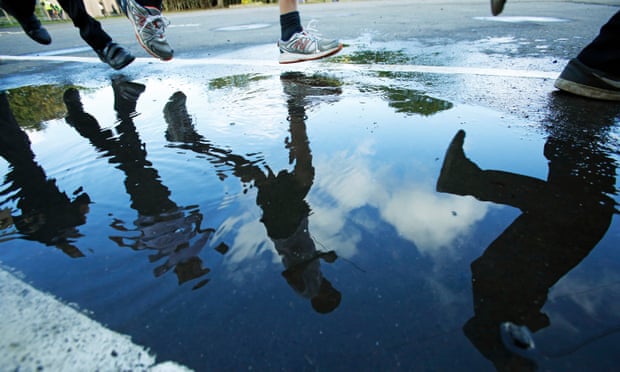The NGO of Athletic in UK are working with Believe Perform to create new online resources for athletes, coaches and parents around mental health and performance.
Great news!
inside excellent life
The NGO of Athletic in UK are working with Believe Perform to create new online resources for athletes, coaches and parents around mental health and performance.
Great news!
What if they are enthusiastic teachers who are passionate about motivating their students to do their best?
The answer could be positive if you consider admitting 51 students to a totally free English school in one of London’s poorest neighbourhoods. In fact, in 2014 only 1 had managed to enter Oxbridge, an acronym of the two best universities in England, while this year they have become 51. Many of them are children of immigrants and belong to ethnic minorities.
Mr Sam Dobin, director of the school’s sixth form, puts the still-unusual success down to teachers working to “actively dispel the myth that you have to look or speak a certain way to get a place at Oxford or Cambridge” among their diverse student body.
He said: “Oxbridge simply want the students with the most academic ability and potential, and we instil within our students the confidence to make applications knowing that their talent and hard work will be rewarded.”
This data confirms, moreover, a trend that has brought 69% of students enrolled in Oxford from public and free schools that can be accessed on the basis of results, while only 31% come from pupils in expensive private schools, which have an annual cost of about 35 thousand euros.

English football moves to promote a national campaign to promote mental health.

In the stadiums, before the game there will be showed a video in which Frank Lampard, Chelsea’s manager, will admit that his family “stored a lot of emotions, feelings and sometimes anxiety”, and his former teammate Joe Cole will describe how he practiced yoga when he felt anxious, “centering himself and getting back to the zone.”
Many footballers have developed a desire to help others like Tottenham’s Dele Alli: “There are so many people struggling with their mental health, so I want to help people understand that they don’t have to face it alone.”
Team supporters in particular are mostly men, around 15 million, who with great difficulty admit they have mental problems and usually are not committed to dealing with them. The message of the players easily will reach a very large audience and will be of great help because it comes from other men, who are part of the teams whose fans they are.
Similar statements come from managers like Slaven Bilić, West Bromwich Albion, who said that without a good mental condition he would not be able to transmit energy and ideas to his players. And Rosella Ayane, a Tottenham player, explains: “Turning off your mobile phone, Twitter and Instagram allows you to live fully your time and only in this way you make a big difference.”
Almost 40 years ago Terry Orlick wrote a chapter titled “From Hero to Zero”: “The challenge is not only in pursuing excellence but in doing so without destroying the rest of your life.” How many top athletes has been committed to pursue this positive goal? That is to say, be aware and committed to distinguish between “my career is the only thing” or “my career is the most important thing I have” or better “my career and my life out of sport are both important.”
Today it seems that many football players in UK do not live following the goal to pursue their personal wellbeing.
A new report, produced by Sheffield Hallam University, ukactive and DataHub, argues something health industry professionals have long known to be true – that people should become more active as they age, not less.
Reimagining Ageing, released at the ukactive National Summit in September, says older people’s lives are being cut short by inactivity and paints a compelling picture of how the cost of not tackling this challenge could threaten the NHS.
A few key facts: by 2030 the number of people in the UK aged 60 or over will hit 20 million – up 31 per cent from today’s figure of 15.3 million.
“Our population is ageing fast, with a proliferation of health problems. It has long been assumed such problems were directly caused by ageing, and could, therefore, be neither prevented nor treated,” says Sir Muir Gray, formerly chief knowledge officer for the NHS.
“However, we have clear evidence that ageing by itself is not a cause of major health problems until people are in their mid-90s. In fact, the problems we’ve ascribed to ageing are due to disease – much of it preventable – such as loss of fitness and negative attitudes to growing older.
“The loss of function and resilience we’ve assumed to be the result of ageing can, in fact, be influenced principally by activity: physical, mental and social,” he says.
Getting our ageing population active will require a ‘cultural transformation’ of the perceptions we have towards ageing. As a sector, we must be prepared with the facilities, products, services, programmes and expertise required to meet the demands of an older population.
“We need to inspire a shift in how we approach our ageing years, with a major emphasis on building physical activity in at every step, to ensure long lives are also healthy lives,” says ukactive CEO Steven Ward. “The phrase ‘put your feet up’ is one of the most dangerous in the English language.”
The report calls for whole-society collaborations to create active environments via accessible community facilities, to embed physical activity promotion into the healthcare system and to harness new technology to make activity and exercise the natural choice for older people.
ukactive believes that one solution is Wellness Hubs, where physical activity facilities sit alongside local services such as libraries, police stations and GP surgeries, creating a single community focal-point that offers inclusive, welcoming and holistic physical activity experiences for a broad range of people. Evidence from existing Wellness Hubs has shown a positive impact on local communities, particularly among older populations.
“Over 6.3 million adults aged 40 to 60 do not achieve 10 minutes of continuous brisk walking over the course of a month and are missing out on important health benefits, according to the Public Health England (PHE) 10 minutes brisk walking recommendations: evidence summary.
The findings also reveal how lifestyles have changed over time, showing that people in the UK are 20% less active now than they were in the 1960s and on average walk 15 miles less a year than 2 decades ago. The sedentary nature of modern, busy lives makes it difficult for many to find the time for enough exercise to benefit their health.
PHE’s new One You physical activity campaign is encouraging adults to build 10 minutes continuous brisk walking into their day as a simple way to improve their health. This is particularly aimed at those who have an inactive or low activity lifestyle and may find incorporating activity into their day challenging. The ‘Active 10’ app has been developed to show how much brisk walking a person is doing each day and how to incorporate more of it into their lifestyles.
Taking at least 1 brisk 10 minute walk a day has been shown to reduce the risk of early death by 15%. A 10 minute walk can contribute to meeting the CMO’s physical activity guidance of 150 minutes of moderate to vigorous exercise each week. This can lead to health benefits including a lowered risk of type 2 diabetes (by 40%), cardiovascular disease (by 35%), dementia (by 30%) and some cancers (by 20%).
The severity of the current physical inactivity epidemic amongst adults contributes to 1 in 6 deaths in the UK and is costing the NHS over £0.9 billion per year.”
(da gov.uk)
We do so few things to promote the movement amog the children, that news like this one become immediately virals and demonstrate how it could be easy to do much more with only the good will.

“As son as the children at one primary school in Stirling hear the words “daily mile”, they down their pencils and head out of the classroom to start running laps around the school field.
For three-and-a-half years, all pupils at St Ninians primary have walked or run a mile each day. They do so at random times during the day, apparently happily, and despite the rise in childhood obesity across the UK, none of the children at the school are overweight.
The daily mile has done so much to improve these children’s fitness, behaviour and concentration in lessons that scores of nursery and primary schools across Britain are following suit and getting pupils to get up from their desks and take 15 minutes to walk or run round the school or local park.”
Children as young as eight are being put off sport by the behaviour of their parents, according to a survey by the Marylebone Cricket Club (MCC) and cricket charity Chance to Shine. Of the 1,002 eight to 16 year olds surveyed, 45% said the bad behaviour of parents made them feel like not wanting to take part in sport.
84% of parents of those children agreed that negative behaviour discouraged youngsters from participation.
In the survey, 41% of the children spoken to said their parents criticised their performance – 16% saying it happened frequently or all the time – with 58% of the parents believing there was more shouting from the sidelines compared to their childhood.
One child reported seeing a mother smash a car window after the opposition scored, another witnessed “a dad hit the ref for sending his kid off”, while one parent recalled police being called when two opposing parents started fighting.
Chance to Shine coaches are to begin a summer programme of lessons in playing sport in a sporting yet competitive manner to 350,000 children in more than 5,000 state schools as part of the MCC Spirit of Cricket campaign.
Coaching ambassador Kate Cross, who plays for England Women, said: “We want children to be competitive but there is a line that shouldn’t be crossed and that applies to children as well as to any pushy parents watching them.”
Source: BBC News
Following UK coaches and Canadian Sports Center these are the main issues in youth sport:
The England manager Roy Hodgson has confirmed he will use a sports psychologist in the lead-up to the World Cup – naming Dr Steve Peters as the man who will help prepare his players for the challenges in Brazil.
Peters, who has worked closely with Liverpool and has a long-standing relationship with the England captain Steven Gerrard, will be involved with Hodgson’s squad and the manager is pleased to have him on board.
“It is not just any psychologist,” he said. “It is Dr Steve Peters, who is a very famous man in that area. He has a great CV of working in different sports and has been doing some work with Liverpool and Brendan Rodgers so Steve knows him well.
“It is something we have spoken about for some time but we wanted to get the right man – luckily Brendan let me talk to Steve and he has accepted our invitations so we are happy with that.”
Peters has also worked successfully with the Great Britain cycling team and the five-times world snooker champion Ronnie O’Sullivan.
(From Guardian)